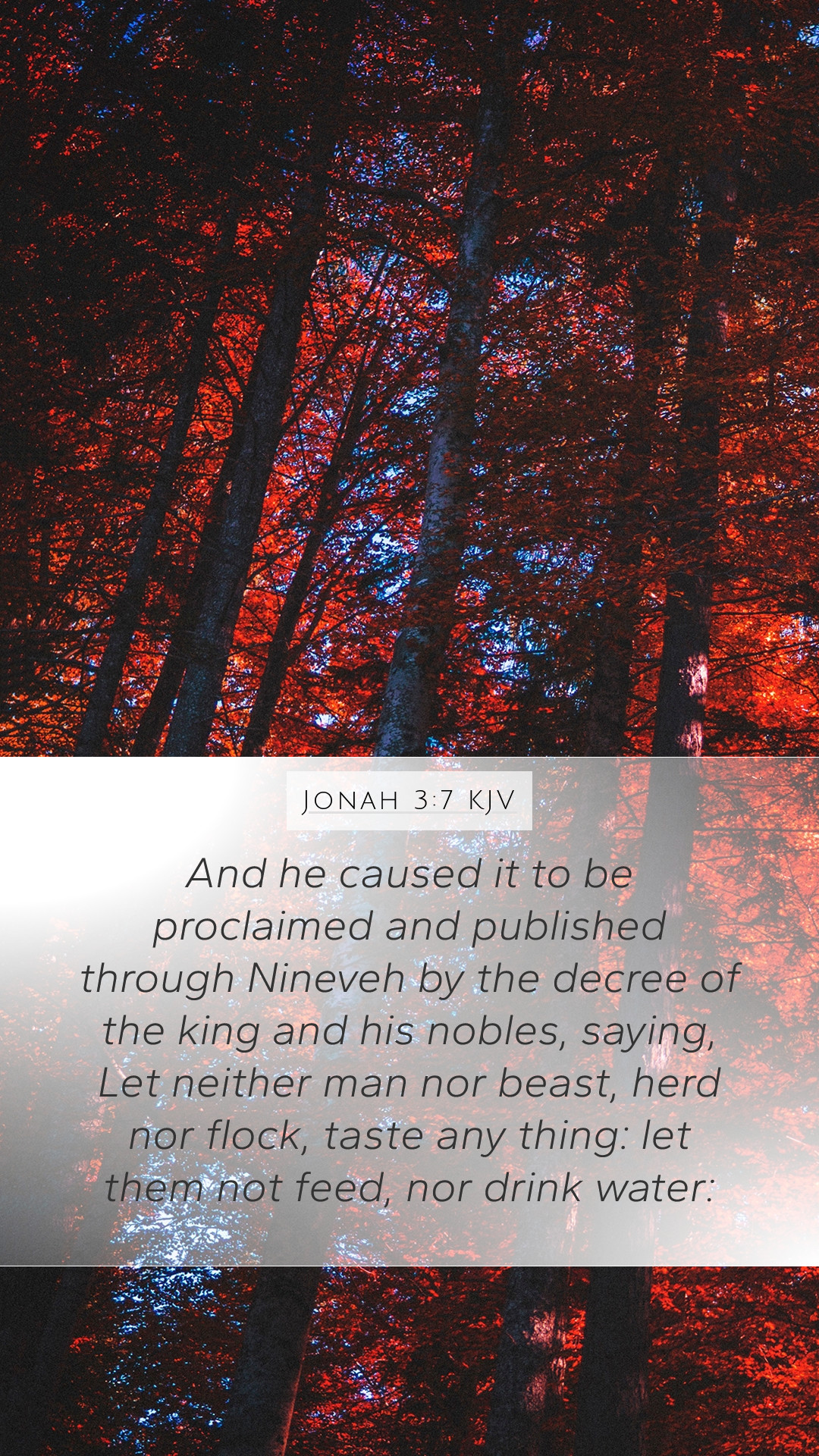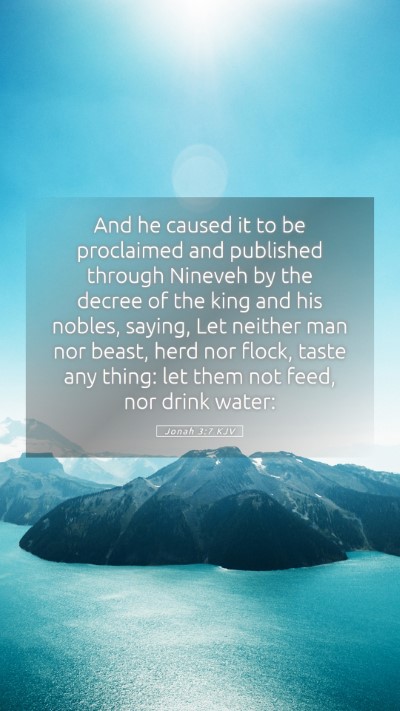Old Testament
Genesis Exodus Leviticus Numbers Deuteronomy Joshua Judges Ruth 1 Samuel 2 Samuel 1 Kings 2 Kings 1 Chronicles 2 Chronicles Ezra Nehemiah Esther Job Psalms Proverbs Ecclesiastes Song of Solomon Isaiah Jeremiah Lamentations Ezekiel Daniel Hosea Joel Amos Obadiah Jonah Micah Nahum Habakkuk Zephaniah Haggai Zechariah MalachiJonah 3:7 Meaning
What is the meaning of Jonah 3:7?
And he caused it to be proclaimed and published through Nineveh by the decree of the king and his nobles, saying, Let neither man nor beast, herd nor flock, taste any thing: let them not feed, nor drink water:
Jonah 3:7 Bible Verse Meaning
Understanding Jonah 3:7
In Jonah 3:7, we find a pivotal moment in the story of Jonah and the city of Nineveh. The verse states:
"And he caused it to be proclaimed and published through Nineveh by the decree of the king and his nobles, saying, 'Let neither man nor beast, herd nor flock, taste anything: let them not feed, nor drink water.'" (Jonah 3:7, KJV)
Bible Verse Meanings
This verse encapsulates the urgency and seriousness of the king of Nineveh’s response to Jonah’s prophecy of imminent destruction. For studying the meaning of Bible verses, it is significant to delve into various insights that public domain commentaries provide:
Bible Verse Interpretations
-
Matthew Henry:
Henry notes that the decree reflects a deep societal response—a collective recognition of sin and the need for repentance. He emphasizes that both humans and animals were included in this fast, representing that the crisis affected all, leading to a total cessation of normal life as a plea for divine mercy.
-
Albert Barnes:
Barnes explains that the king’s proclamation demonstrates both humility and serious intent to avert disaster. The act of making a decree indicates a societal turnaround, marking a critical moment when even the leaders acknowledge their faults and submit to God’s authority.
-
Adam Clarke:
Clarke elucidates that animals, unable to comprehend the moral implications, are included in the fast as symbols of the community's holistic contrition. This remarkable inclusion reflects a tradition that recognizes the interconnectedness of all creation in times of repentance.
Bible Verse Understanding
Understanding this verse requires an analysis of its historical context. Understanding Scripture often benefits from considering the cultural practices of ancient Near Eastern societies where communal fasting and penance were common practices during times of crisis or calamity.
Bible Verse Explanations
The explanation of this verse involves examining the king's leadership. His immediate action to declare a city-wide fast illustrates not just personal, but collective responsibility—highlighting the application of Bible verses to daily life by prompting believers to consider how their actions influence their communities.
Bible Verse Commentary
In Jonah 3:7, we see the emergence of a profound theme of repentance, which permeates the narrative. The significance of this verse is that it illustrates the potential for change and redemption, even in the most unlikely places, reinforcing hope in divine mercy.
Related Bible Cross References
- 2 Chronicles 7:14 - Emphasizes the need for humility and prayer for healing.
- Joel 1:14 - Calls for consecration and fasting as a community response to calamity.
- Matthew 12:41 - Jesus references Nineveh's repentance as a pivotal example.
- Esther 4:3 - Highlights the communal fasting response in times of distress.
Conclusion
In conclusion, Jonah 3:7 serves as a rich source for Bible study insights, reminding us of the power of collective repentance and the grace that can follow. In your Bible study groups and online Bible study sessions, this verse can inspire discussions on leadership, accountability, and the community's role in spiritual redemption.


